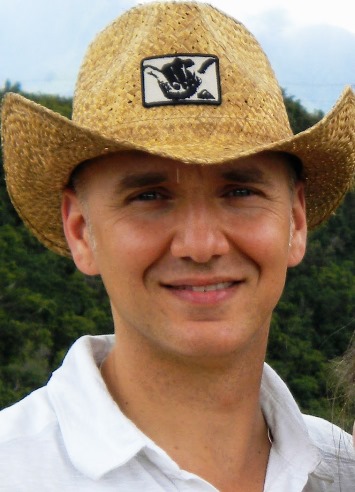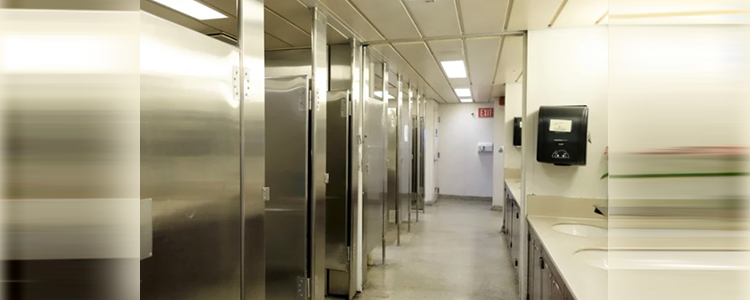— by Margie Doyle —
Alex Tamayo-Wolf came to Orcas Island with plenty of thoughts about the world in which he hopes to raise his daughter. That motivation is now bringing permaculture to a new garden program at Orcas Christian School. Tamayo-Wolf was motivated to establish the “Seed to Seed” program, “to improve and sustain quality of all life by teaching and practicing permaculture.” And the Orcas Christian School is partnering with him in this new “laboratory,” which Tamayo-Wolf sees as benefiting all islanders who are interested in self-sustaining agriculture.
Permaculture is often described as “applied ecology.” Alex describes the basic elements of permaculture as:
1) mutually beneficial
2) self-sustaining
3) regenerative
whether applied to gardening or to organic agriculture, landscape design, natural building techniques, and environmental protection.
Many Orcas Islanders’ stories start the same: I came, I saw, I moved here. It happened years ago to computer application designer Alex Tamayo-Wolf, and after securing his employment and starting his family, he made that plan a reality. Alex came to Orcas riding his bike; as he spent the day going up Mt. Constitution, observing a salmon BBQ and watching picnics and games at Cascade Lake; he drank in the community atmosphere and vowed, “If I ever have a kid, I’m raising my kid here.”
Fifteen years later, Alex left Microsoft, and considered working remotely from the San Juans. He investigated the three major islands –Lopez was too slow, San Juan was too fast, and Orcas was the Goldilocks island — just right. Who would think that the road from Redmond to Orcas led through Atlanta, Georgia? But Alex took a job in Atlanta, in process project management, that guaranteed he could work remotely from any location after six months. So he signed a contract and did just that.
When he moved to Orcas, he found some property to build his home on and enrolled his daughter Grace at Children’s House and now at Orcas Christian School. He describes his life as “very happy.”
He says, “Orcas changes people: I’ve been influenced by the pervasive culture of Orcas island’s environmental and conservation community — arborists, sustainability, ecology, permaculture, forestry. I was skeptical at first, but I allowed myself to explore their ideas with an open mind and ruminate.” Those thoughts “stayed dormant until the 2016 election,” Alex says, “when I was motivated to build a safe homestead for Grace where she could survive, make a living.”
As he worked building his home, he distilled what he learned and taught Grace about how he applied it personally on his Crow Valley/Turtleback Mt. homestead, teaching his young daughter. “Everyday I learn something and share it with Grace. I was thinking all kids should be learning this stuff, and wondering how do I teach kids and adults about the ethics, principles and systems of permaculture? I saw opportunity to go to scale for the whole community.”
Then began his search for partners, and when his idea was encouraged at the first place he contacted, Orcas Christian School (OCS), he wrote up a proposal. He was told the school board and administration was already thinking along the lines of his “Seed to Seed” proposal, and “embraced the idea last fall.”
School Principal Kirk Haley says, “We’re very excited Alex has partnered with us to get this program going. We as a school are always looking to help our children learn and I’m glad to see we can put it all together for our students.
“It becomes a lot more meaningful when you can show kids the results of things; it makes the learning complete. We’re growing food for our own lunch program and to help the students and the community improve where we are each and everyday.”
The garden will be .33 acres running north-south from Enchanted Forest Road to the campus Observatory.
Recently, with his partner, Emmet Woods, Alex Tamayo-Wolf has been testing the soil on the land. The program will teach OCS students biology, horticulture, climatology and beyond that his motivations is to show the kids at school how to provide a service and help people to design a “food forest” for whatever space community members have, to enable them to grow their own vegetables and other plants. “I’d love to do that as a free service, and I think I can.”
In the pilot phase of the program, Tamayo-Wolf wants to emphasize getting to zero waste, creating mulch, employing methods of conservation and reaching out to the community “to establish a network of people who want to be a part of creating and growing a visible community garden with the fair-share ethic of giving surplus to the community.”
He welcomes input including volunteer efforts, grant-funding and donations, as well as materials for fences, seeds, greenhouses, plants, tools, and more.
In explaining this project, Tamayo-Wolf reminds us that “The industrial agriculture system consumes fossil fuel, water, and topsoil at unsustainable rates. It contributes to numerous forms of environmental degradation, including air and water pollution, soil and water depletion, diminishing biodiversity, and fish die-offs. This is the system upon which we are dependent for food, and it cannot last. As it exhausts itself, the quality of our lives, all life, diminishes. Permaculture is an accessible and proved answer to this problem, which can be implemented locally.”
Goals of the program are:
- Develop a permaculture course (or courses) that diversifies the current curriculum, and integrates permaculture ethics, earth care, people care and fair share, into the curriculum.
- Establish campus landscapes that are agriculturally sustainable and provide economic benefit to the school, as well as nutritious food to those in our community who are most in need.
- Create a model for other institutions or individuals to follow, and publish systematically evaluated research.
- Create a school cafeteria menu that is sourced by the permaculture landscape – also known as “food forests,” and that perpetuates the permaculture principles taught in the course work.
Food safety, habitat restoration, conservation of biodiversity, carbon footprint reductions, using “waste,” heirloom species reproduction, enhancing health, providing exercise, stress relief and community-building are further objectives of the “Seed to Seed” program.
“Permaculture principles will become more important in coming years. We need to get people off the unsustainable system of agriculture, and to teach why this is necessary, without being alarmists or nihilist,” says Alex.
“We live in a wonderful place, and we can grow so much.”
**If you are reading theOrcasonian for free, thank your fellow islanders. If you would like to support theOrcasonian CLICK HERE to set your modestly-priced, voluntary subscription. Otherwise, no worries; we’re happy to share with you.**










Wonderful news and another step towards Island Food Security.
Join the Farmer to Farmer network on Facebook and join us on Wednesday mornings from 9-10am upstairs in the Orcas Food Co-op Commons.
Eat local!
Please tell me that no forest will be cut to make this garden. i would be glad to speak with you on why this is so important to preserve what little forest is left in Eastsound.
AWESOME! This sounds so cool!
Try planting simple quartz crystals in with your plants, they make them grow larger! (Really!)
B. Sadie Bailey: No existing forests or trees cut.
Dom: I will read up on that. Thanks.